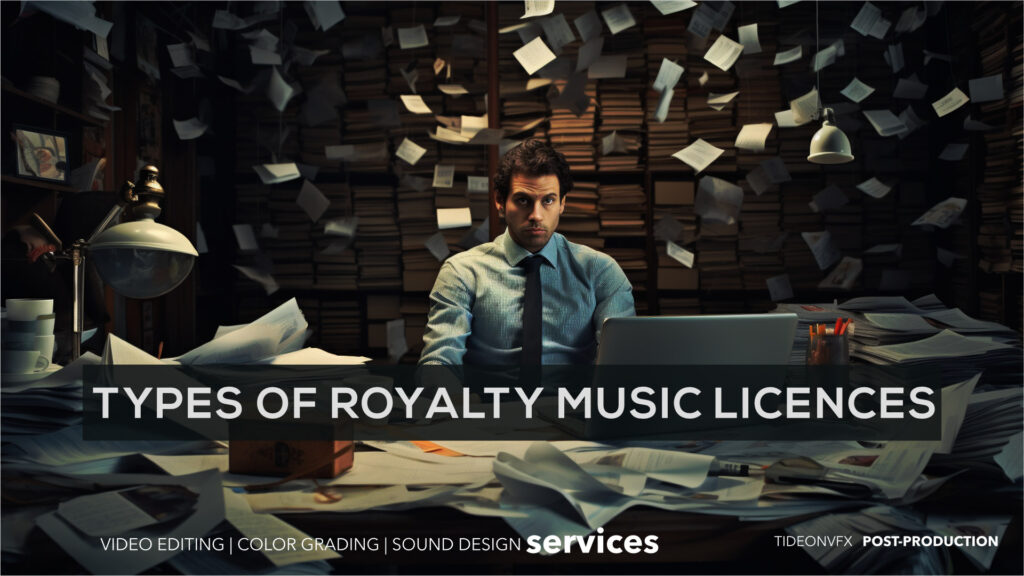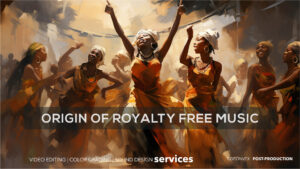Audio
What Type Of Music Licences Are There?
WHAT TYPE OF MUSIC LICENCES ARE THERE?
The types of royalty-free music licences can vary significantly depending on the platform and the terms they offer. Here’s a breakdown of common types of royalty-free music licences:
- Single-Use Music Licence:
- Example: You purchase a single-use licence for a track from a royalty-free music platform.
- Details: This licence typically allows you to use the music for a single project, whether it’s a video, presentation, or other creative work. The usage is restricted to that specific project, and if you want to use the music in another project, you may need to purchase an additional licence.
- Multi-Use Music Licence:
- Example: You purchase a multi-use licence for a track.
- Details: A multi-use licence grants you the right to use the music for multiple projects. The number of projects may be specified in the licence terms. It provides flexibility for various creative endeavours without the need to repurchase for each project.
- Subscription-Based Music Licence:
- Example: You subscribe to a royalty-free music platform.
- Details: With a subscription-based licence, you gain access to the platform’s entire music library for the duration of your subscription. During the subscription period, you can download and use as many tracks as you want for your projects. However, once the subscription ends, you may lose the rights to use the downloaded tracks in new projects.
- Perpetual Licence:
- Example: You purchase a perpetual licence for a track.
- Details: A perpetual licence allows you to use the music indefinitely for a specific project. You won’t lose the rights to the music even if your subscription or membership on the platform expires. This type of licence is beneficial for projects with a long lifespan.
- Personal Use Licence:
- Example: You purchase a personal use licence for a track.
- Details: Some platforms offer music licences specifically for personal use, limiting the usage to non-commercial projects. This might include personal videos, family events, or hobbyist projects. Commercial use, such as in advertisements or corporate presentations, may require a separate commercial licence.
- Commercial Use Music Licence:
- Example: You purchase a commercial use licence for a track.
- Details: A commercial use licence allows you to use the music in projects intended for commercial purposes, such as advertisements, promotional videos, or any content that generates revenue. This licence often comes at a higher cost than non-commercial licences.
- Royalty-Free for Social Media Licence:
- Example: You purchase a licence that specifically allows usage on social media platforms.
- Details: Some platforms offer licences tailored for social media use. This might include using the music in videos on platforms like YouTube, Instagram, or TikTok. These licences may have specific terms related to social media content.
- Broadcast Music Licence:
- Example: You purchase a broadcast licence for a track.
- Details: If you plan to use the music in television, radio, or other broadcast media, a broadcast licence is necessary. This licence accommodates the broader reach and exposure associated with broadcast platforms.
- Custom Licence:
- Example: You negotiate a custom licence with the music provider.
- Details: In some cases, particularly for large-scale or unique projects, you might negotiate a custom licence directly with the rights holder. This allows for tailored terms that suit the specific needs of your project.
- Attribution-Free Music Licence:
- Example: You purchase an attribution-free licence.
- Details: Some licences may require attribution, meaning you need to credit the artist or platform when using the music. An attribution-free licence removes this requirement, providing more flexibility in how you use the music.
When selecting royalty-free music for your projects, it’s crucial to carefully read and understand the licence terms associated with each track or platform. Pay attention to usage restrictions, attribution requirements, and any limitations on the scope of use. This ensures that you comply with the licensing terms and avoid potential legal issues in the future.
If you have any questions, feel free to contact us.






